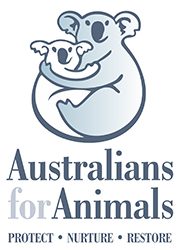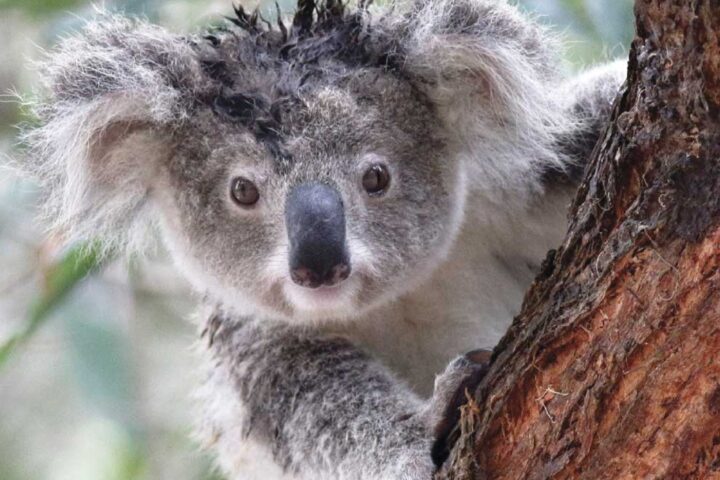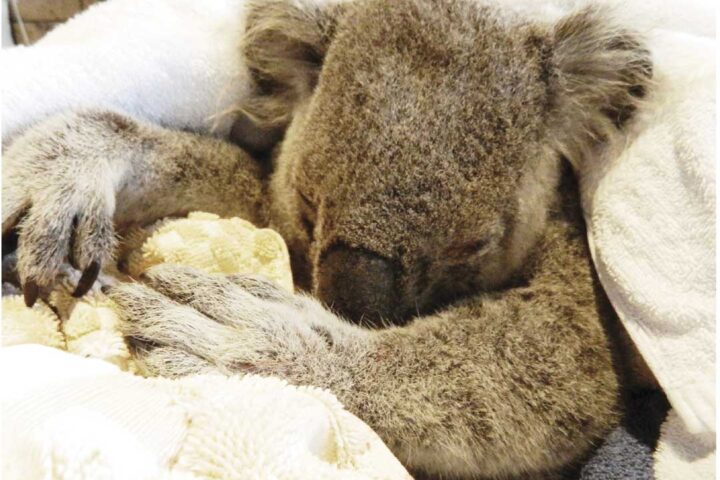PRESS RELEASE
AUSTRALIANS FOR ANIMALS INC.
GALAXY POLL DEMONSTRATES NINE IN TEN AUSTRALIANS WANT THE NATIVE TITLE ACT CHANGED TO PROHIBIT THE HUNTING OF THREATENED AND ENDANGERED ANIMALS
Australians for Animals Inc. commissioned a Galaxy Poll to establish how Australians feel about indigenous hunters being allowed to kill threatened and endangered animals. The results demonstrate resounding support for changes in the Native Title Act to prevent the hunting of threatened and endangered species
The questions are as follows:-
QUESTION 1.
“Under current Australian legislation indigenous Australians are allowed to kill threatened and endangered animals such as dugongs and turtles. Do you agree or disagree that threatened and endangered animals should be protected from hunting by indigenous people?”
RESULT: Two in three (66%) Australians agree that threatened and endangered animalsshould be protected from hunting by indigenous people, with 41% overall strongly agreeing with this .
QUESTION 2.
“Would you support a change in the relevant legislation, the Native Title Act, to prohibit the hunting of threatened or endangered animals?”
RESULT: Among those who agree that threatened and endangered animals should be protected, almost nine in ten (88%) say that they support a change to the Native Title Act to prohibit the hunting of threatened or endangered animals.
Chairman of Australians for Animals Inc, former Senator Norm Sanders, said:-
“This poll shows that most Australians recognize the danger of having exceptions to bans on the killing of endangered animals, no matter who is involved. Dugongs and turtles are just as dead when killed by an Aboriginal person as by anyone else. Traditional hunting with waddies and spears was sustainable. Hunting with rifles, 4WD’s, tinies and outboards is not. It is high time that the same law applies to all who endanger Australia’s animals. “
Dominique Thiriet, Law Lecturer at James Cook University, said:-
“The results of the poll show that people are no longer prepared to accept traditions that involve the killing of threatened and endangered species. It is important that the Commonwealth and the State governments work with Indigenous communities to ensure that such practices are phased out asap.”
BACKGROUND
A 2003 report by the Federal Government entitled – National Recreational and Indigenous Fishing Survey states;-
Indigenous fishers harvested a range of species that are prohibited for non-indigenous Australians These species included reptiles (crocodiles, turtles) and mammals (dugong). It was estimated that indigenous fishers harvested about 390 crocodile, 1,600 dugong, 6,000 saltwater turtle, 14,000 freshwater turtle and 40,000 turtle eggs during the survey year. Dugong were taken in all States/ Territory with largest numbers (1,300 dugong) being reported from Queensland.
In 2009, according to the Great Barrier Reef Outlook Report, 1,293 dugong were “ harvested” in Queensland. This number was based on the above survey. There are no current figures available.
Queensland’s Department of Environment and Resource Management (DERM) reports that hunting was the largest single anthropogenic source of dugong mortality recorded in 2011. Of the records received for 2011, the records from the Starke River region are of the greatest concern because they were suspected to be from illegal hunting and were estimated to have included at least 23 dugongs. The cases were investigated by DERM staff but remain unsolved.
According to Queensland’s Marine Stranding Network, Indigenous hunting remains the largest source of uncertainty in estimating levels of anthropogenic mortalities to dugongs in Queensland.
Indigenous hunting is unregulated and un-monitored. Threatened and endangered animals need to be treated with the same level of protection by all Australians.
For comment contact: Sue Arnold Co-ordinator – info@australiansforanimals.org.au



